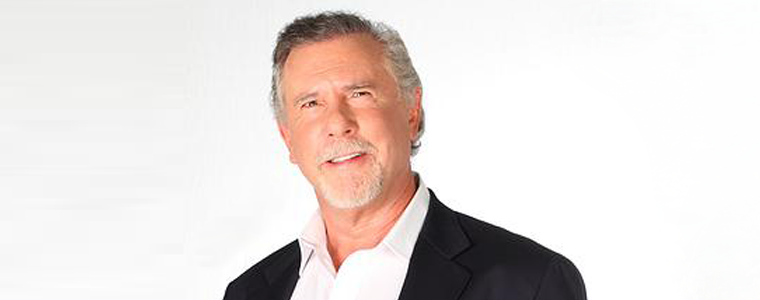XtendOceanLife.org is the brainchild of Kane Matthews and Warren Matthews of Xtend Life Natural Products and xtend-life.com, based in Christchurch, New Zealand. We recently spoke with Warren, the company’s founder and chairman, about why ocean conservation is so near and dear to his heart and why he and his company are so concerned about protecting our oceans.
Why are Oceans so important to you?
Oceans, of course, are crucial to life and people in general. For me personally, I enjoy being in it and on it in my boat.
The ocean has been an integral part of my life. I’ve always lived by the ocean here in Christchurch and I’ve been on boats regularly since my late teens. I did commercial fishing for a number of years, built commercial fishing boats, and power boats. Twenty-five years ago I developed ocean-going luxury power catamarans, which we delivered around the world. More recently, I became interested in traditional Polynesian catamarans, which is a passion of mine.
What issue concerns you the most?
There’s a real problem with stuff going into the ocean. I like to see the ocean with as much actual life in it as possible, with minimal rubbish, preferably no rubbish at all.
I became aware of the pollution problem up close and personally on a visit to a marine park in Thailand a number of years ago. The water was beautiful, crystal clear, when suddenly I was swimming through a maze of mostly plastic bags and package wrappers with Chinese writing on. This was likely dumped in the shipping routes further out. I couldn’t see either end of this plastic maze, it must have been at least 100 metres wide. Besides making it unpleasant, all this trash is damaging life in our oceans.
This is a serious problem in the Northern hemisphere particularly. Fortunately, in New Zealand, it is less of a problem at this point. We get debris from time to time, bit it’s very rare to see all this plastic along the coastline. Two years ago I sailed a boat 20,000 kilometres from New Zealand to Thailand, and it was interesting to observe the differences in the ocean along the way. I didn’t see any rubbish until north of Australia. It gradually got worse and worse.
It’s not just the plastic I’m concerned about. People flush pharmaceutical drugs down the toilet which end up in our oceans, and all manner of toxic chemicals down the drains. I remember reading a report about weird fish in the San Francisco harbor that were a mix of male and female because of ingesting hormones. Too many people don’t realize these things are going into the oceans. And we know that fish have been dying because of the microbeads in exfoliants.
The best thing we can do is to raise awareness to think twice before consuming or flushing these harmful substances into our water and sewer systems, and before throwing plastic away.
What other problems have you encountered personally in the ocean?
Besides what’s going in, another big concern is the amount of exploitation of what’s going out of it. On that sailing trip to Thailand, it became harder and harder to catch a fish as I went northward. In Indonesia, even 200 miles from shore the sea with lit up with fishing boats, the activity was so heavy. The oceans can’t sustain this level of fishing and this is a problem in many areas around the world.
Tell us about why Xtend-Life decided to launch XtendOceanLife.org.
My son Kane was the one who really initiated it. He has a strong concern, especially, about the plastic vortexes. Ironically, he doesn’t tend to spend time on the ocean as I do, but he’s also very concerned about ocean life and the environment and helping to raise awareness about it.
The only thing that ultimately is going to help is education, which is starting to happen. I have noticed a difference in the last decade, especially at the kids’ level which is critical.
If we can bring these issues to people’s attention, they talk to someone else, who talks to someone else and shares info through social media. The more we have a situation of public awareness, beyond our individual actions, our politicians are forced to do something about it. We’re seeing some of that with such measures as California’s ban on single-use plastic bags, for example.
We are hoping XtendOceanLife may be able to contribute, to enable more people to think and learn more about the impacts of what they do on the ocean, which in turn affects us all ultimately.
How does the ocean contribute directly to extending our lives?
Well, besides the important health and anti-aging benefits of things like fish oil and green-lipped mussels, one of most therapeutic things we can do is to expose body to good oceanic seawater. Sometimes when I’m out hundreds of miles from land, I’ll drink a tablespoon of pure ocean seawater. It has all the trace minerals in it. In fact, during World War 2, medics could give filtered, diluted seawater to patients in emergencies when blood was not available for transfusions, since its salt and ion makeup is so close to that of blood plasma.
Plus, there is evidence that swimming in the ocean can reduce muscle inflammation and help soothe and maintain the health of the nervous system. I’ve always known how healing it is to be in the ocean, it’s interesting to see more and more studies come out to confirm that.
We really do depend on healthy oceans for keeping our bodies, our climate and our planet healthy. Our XtendOceanLife site is one way we can make a difference in extending not only the life in our oceans, but our own lives.



